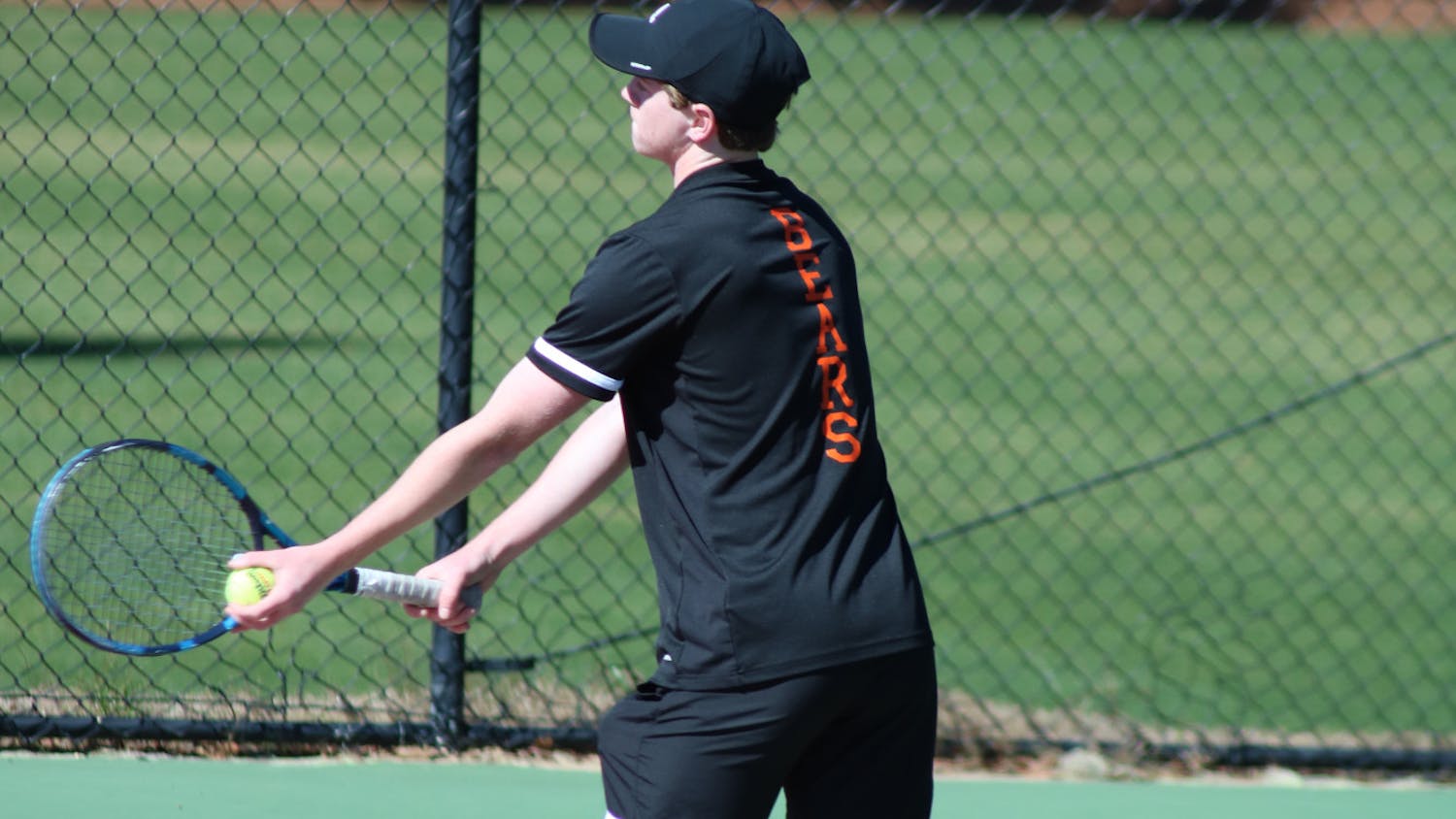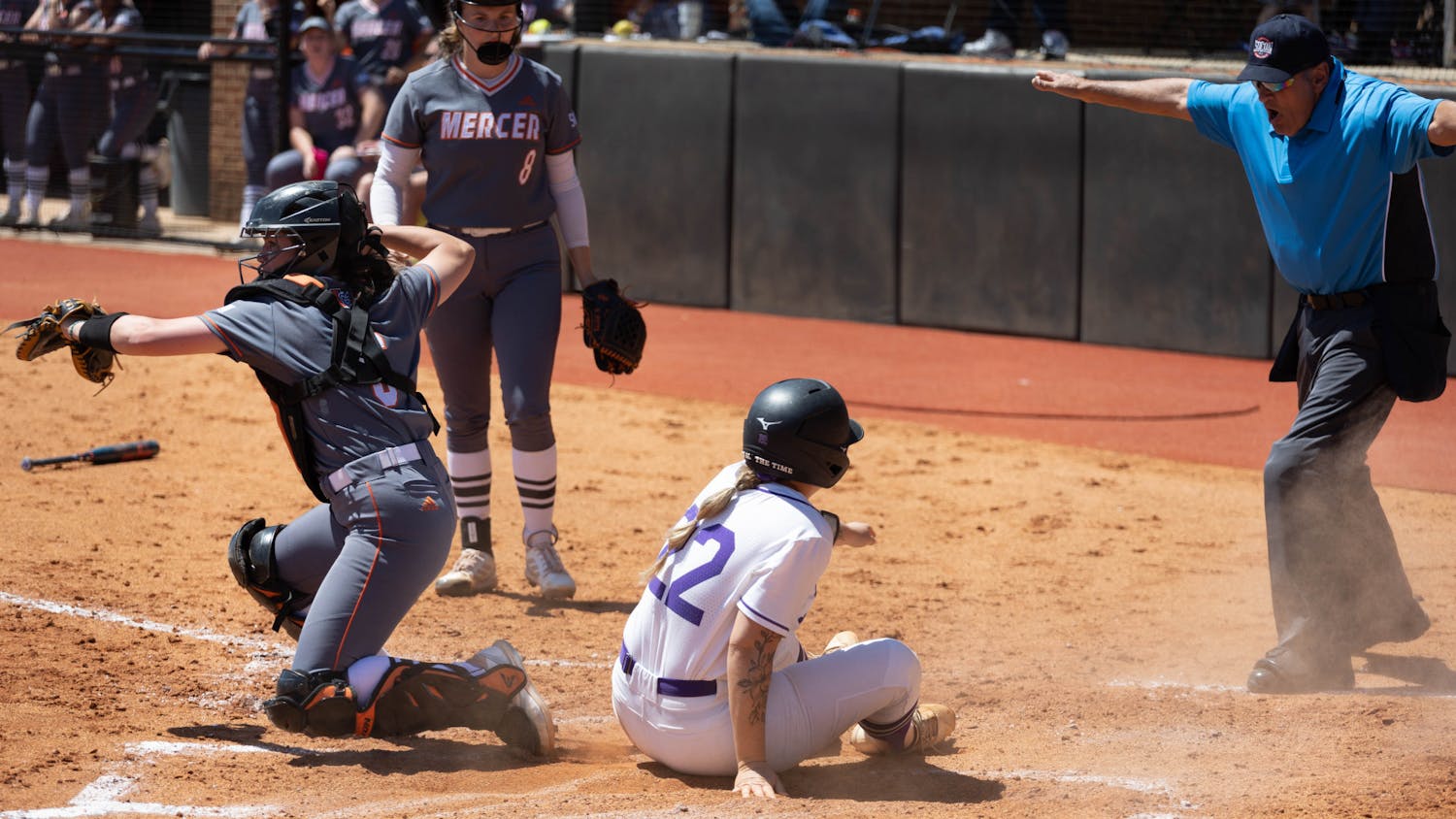The Phi Beta Kappa academic honor society’s Zeta chapter at Mercer hosted the fifth-annual Malcolm Lester Lectures last Monday and Tuesday in the President’s Dining Hall.
The lectures’ annual aim is to inform Mercer students and the public, who are free to attend, of different newsworthy developments fields of liberal arts and public life and to inspire further confidence in these studies. This year’s lecturer was Holden Thorp, the current editor-in-chief of the "Science" journals and former chancellor of the University of North Carolina at Chapel Hill.
Thorp delivered his lectures in three parts, each one discussing a different section of his theme: “Sticking to Our Values in a Chaotic Age: How to Rebuild the Partnership Between America and Higher Education.”
The first lecture “How We Got Here: Attacks, Detachment, and Self-Inflicted Wounds,” took place on March 31 at 10:10 a.m. In the lecture, Thorp discussed how the perceived gap in both trust and communication between academic universities and the general public has evolved and expanded over time.
“Public support for higher education has dropped precipitously, that's no secret,” Thorp said. He then explained the primary causes that he believed caused this rift such as the COVID-19 pandemic and a general lack of trust in the Reagan-era government.
“Before the pandemic, 87% of the public in America would say that scientists are helping the world. That number dropped to 73% during and after the pandemic,” Thorp said.
He then argued that it is the role of the scientific community, in part, to help establish this relationship to a more positive one, and that this can be achieved through transparency and open communication, getting rid of the shadiness of college financial operations.
“It’s going to require everybody’s support, everybody working together to get us out of this, and the administrators and the campuses need to be united, if this is going to happen. That's only going to happen if there's transparency about the operations.”
To end the lecture, Thorp referred to Tony Kushner's 1991 play "Angels in America."
“Faculty, students and the staff can all be the Angels in America. Through our voices, we can do the great work of giving education to people who want it. It can continue, but we’re going to have do it together.”
Thorp’s second lecture, taking place on Tuesday at 11:15 a.m., mainly detailed his experience in the 2011 UNC Chapel Hill academic-athletics scandal, entitled “Interregnum: Why Intercollegiate Athletics is Not a Hill to Die On”.
The scandal in question took place over the years of 2011-2013 and involved the university allowing football players, amongst others, to take faux-classes in order to boost their GPA and ensure that the players' focus could remain on athletics. This scandal ultimately resulted in Thorp stepping down as chancellor in 2012 amidst a slew of accusations.
Thorp denied any culpability in the scandal during the lecture, saying that he was simply in “the wrong place at the wrong time,” and that the University had been “at it” for many years prior.
After the main portion of the lecture detailed the history and details of the case, Thorp then made the argument that sports has ultimately facilitated the same rift in trust and openness between colleges and the public that he had mentioned in his first lecture. He made the case that often times universities are faced with the potential financial benefits of sports, and therefore decide to pursue it, but that it is often focused on to a fault.
“No president who's ever staked their career in athletics has ever really succeeded,” Thorp said.
Near the end of the lecture, he then pointed out the irony of the situation, in that athletes, via NIL deals, are actually getting compensated even more now than they were back then.
“The irony? Everything that Carolina got accused of is now okay, is now legal,” he said.
Thorp then referenced even more leniency in college athletes’ academics now, showing an article about the Oregon Ducks football team, who had recently switched to all-online classes to fully focus on their sport.
The third and final lecture took place that evening at 6:00 p.m. and was titled “Rebuilding the Partnership: Research Integrity as a Test Case for a New Model.” The lecture summarized the previous two lectures, then outlined his plan to improve the relationship between universities and the American public, especially as it pertained to the publication he is actively editing, "Science."
Thorp explained to the audience some common misconceptions about science and scientific journals, and why this has affected public perception so negatively, especially with the influence of the pandemic.
Thorp then pointed out how mistakes in academia have painted a worse public image of scientists and scientific work, and took responsibility on the part of scientists for these mistakes. He then offered advice to academics in the room, based on the motto of Science: “Correction is courageous”.
“If you need to correct it or retract [your work], you should just come right out and say that's what you're going to do, which unfortunately rarely happens. This publicity is not good for science.”
Thorp ended the string of lectures on a positive note, encouraging the audience to “stay strong,” and to always remain diligent, because “there’s nobody else that is going to do it for us."
Jacob Hossler '28 is majoring in Biology with a potential English minor. In his free time he enjoys photography, writing, and playing tennis and soccer.





